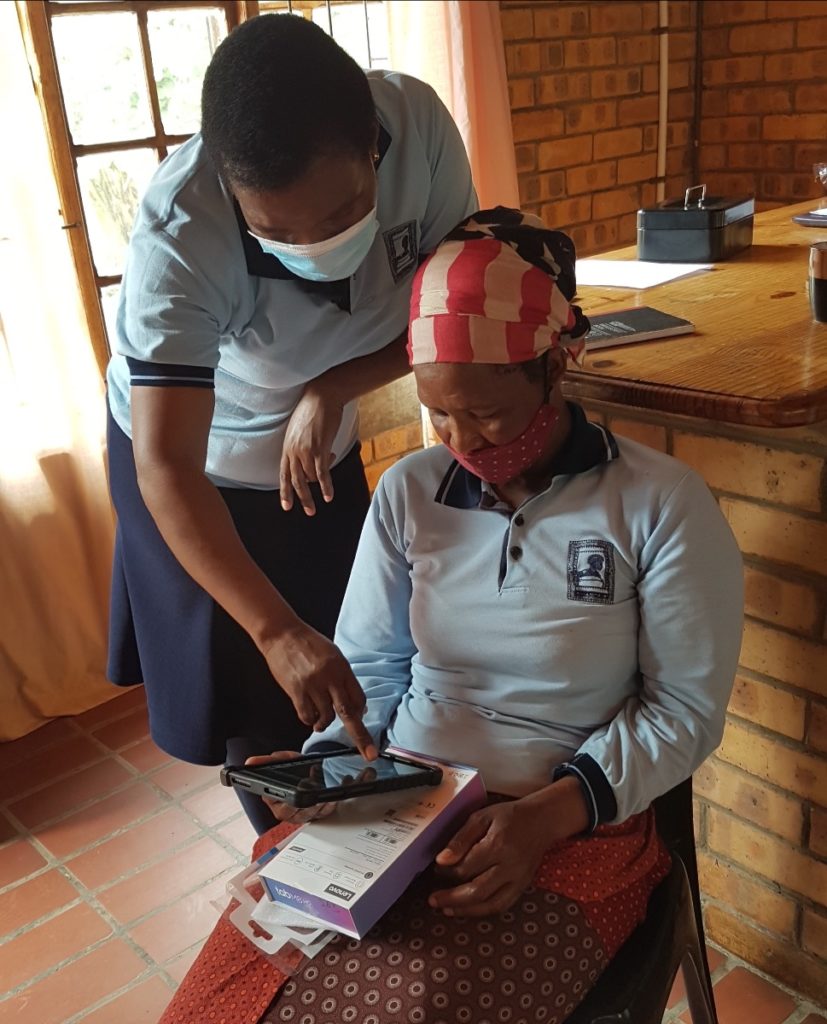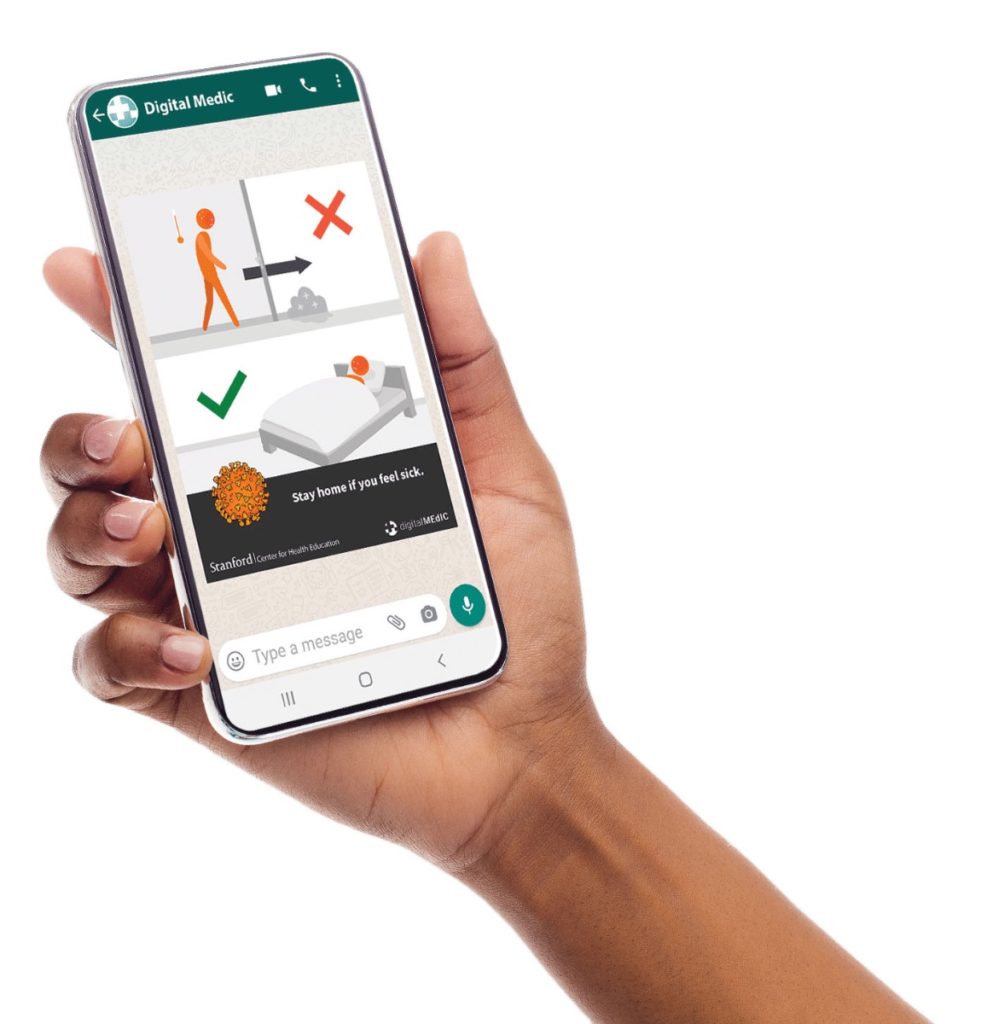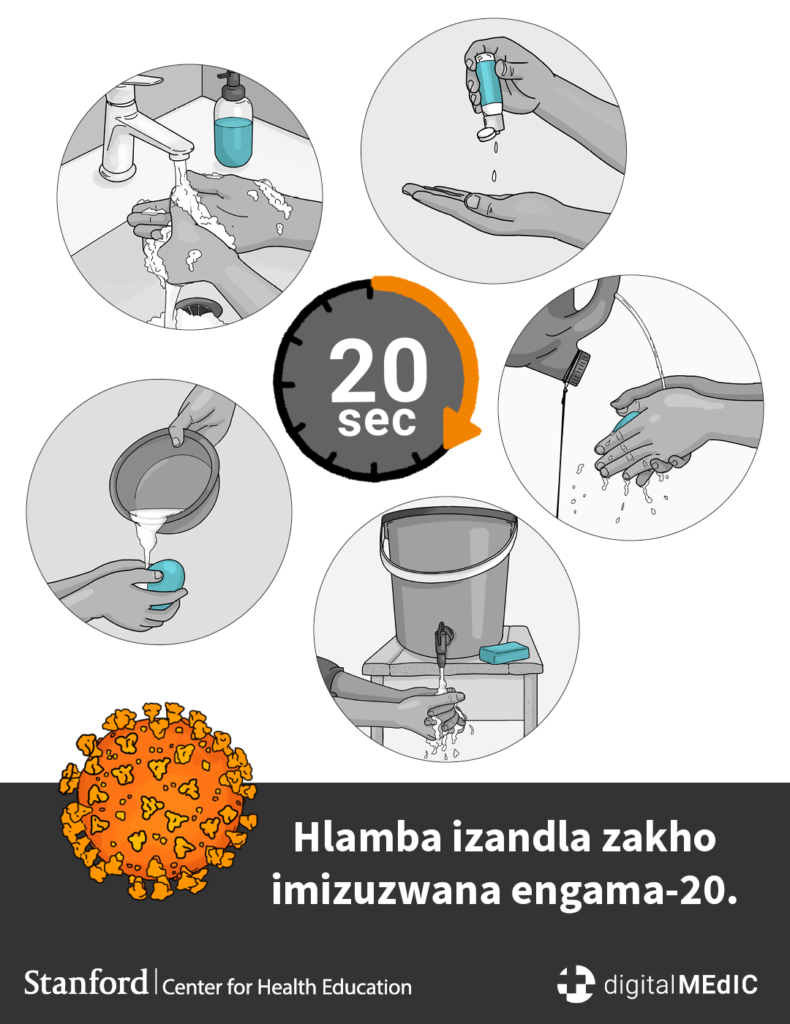Published: 02/01/2021

| Kira-Leigh Kuhnert, Digital Medic South Africa Program Manager Katherine Sziraczky, Digital Medic Engagement Lead |
At the onset of the COVID-19 pandemic, the South African government instituted one of the most severe lockdowns seen globally. This measure was put in place to ensure that health systems and other disaster management agencies were able to adequately prepare rapid and effective emergency responses.
As we know, access to credible health information is crucial to curbing any health crisis. Through local partners in South Africa, Stanford Center for Health Education’s Digital Medic program has provided frontline health workers in the Western and Eastern Cape Provinces with essential information to improve their quality of care for patients with COVID-19 and equip them with engaging tools for public health education.

In a needs-finding survey conducted by Digital Medic, initial information challenges highlighted by local organisations in South Africa included access to health information in local languages and information seen as coming from a trusted source. Digital Medic addressed these challenges through our adaptable health education content developed as part of our COVID-19 toolkit. Content is available in six South African languages and organisations can add their logos to visual assets that can be downloaded and distributed, ensuring that credible health information is shared in the community through a trusted local organisation.
Community health workers have been able to use the offline function of the Digital Medic app to share health information in difficult-to-reach, low-resourced locations where physical access is a challenge, let alone internet. Through the use of tablets or smartphones, our digital health information has been shared in a safe way that aligns with national pandemic restrictions on physical distancing.

In addition to community health workers using our generalized, shareable health information, doctors at both a rural Eastern Cape Province hospital and a tertiary State hospital in the Northern Cape Province have taken our COVID-19 Training for Healthcare Workers course. With modules covering key topics such as symptoms in COVID-19 patients, ventilator management, and conducting virtual telehealth visits, this course relays important COVID safety messages in a short, engaging class format.

Continue to follow our work in South Africa and around the world as we create compelling global health content that meets local needs.
To Learn more, please visit https://digitalmedic.stanford.edu.